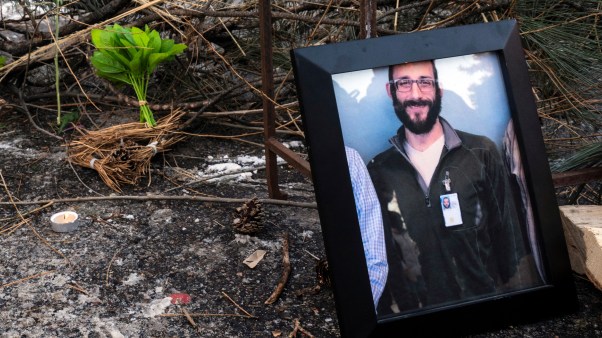In this series


The idea of unreached people groups is still relevant, useful, and helpful for missions today. Scripture is unequivocal about how God works through us and in us to tell the world about Christ.
Because the mandate and scope of missions originate in Scripture, our understanding of the task must draw from Scripture. Additionally, a biblical understanding of other concepts, especially geography, must be recovered in pursuit of a fuller and more robust definition of people groups.
The traditional definition of people groups is problematic, as it focuses only on social factors. Its definition, established in 1982 by the Lausanne Strategy Working Group, starts with “a significantly large sociological grouping of individuals who perceive themselves to have a common affinity for one another.”
For decades, ethnicity and language have been the commonalities that missiologists and missionaries emphasized when evaluating how to reach the unreached. Organizations like Joshua Project still rely on the 1982 definition and primarily support adopting ethnolinguistic approaches in mission strategies and fieldwork.
However, categories like place and environment are essential components in making God’s name known, as the Bible shows. In Genesis 10, the nations have an intrinsic awareness of their geography. The descendants of Japheth, Ham, and Shem are separated by their “families, languages, lands and nations” (Gen. 10:20, NLV). The Great Commission as described in Luke and Acts defines the spread of the gospel geographically (Luke 24:47; Acts 1:8). Paul also takes Roman geography into account when he says that he has proclaimed the gospel from Jerusalem around to Illyricum, the Latin name of a province (Rom. 15:19). Even though Paul is writing in Greek, he uses geographical terms in a vernacular tongue to establish a connection with his Roman audience.
Scripture declares that all of creation, humanity included, will recognize God as Lord over all. As Psalm 22:27 says, “All the ends of the earth will remember and turn to the Lord, and all the families of the nations will bow down before him.” Phrases like “the ends of the earth” aren’t merely descriptive or incidental. Rather, they reflect that our sense of where God has placed us and the landscape of the area we inhabit are important to him.
Geography matters to God. It should be part of how we understand people groups and how we are to reach the “unreached” today. We can examine people groups’ connection to their land, how they tend to it and cultivate it, and what that might reveal about their perspectives of God, creation, and humanity.
Unreached as a descriptive qualifier for people groups also retains its relevance because we still have an obligation to go to the lost. All peoples around the world are an integral part of the psalmist’s proclamation, including displaced people, refugees, and those in India, Pakistan, Indonesia, Bangladesh, and China—the five countries with the most unreached people.
The interconnectedness of our world does not mean that people are any more able to receive a relevant, understandable gospel presentation and be discipled. About two-thirds of people worldwide are active internet users, but that leaves another third who are not as digitally connected.
Around 3.4 billion people have not had an opportunity to hear the gospel in a language or method they understand. If their neighborhoods do not have established churches that can communicate the gospel well and serve as bases for discipleship, fellowship, and missional equipping, then a major gap between initial people-group engagement and Great Commission fulfillment still exists.
How do we address this gap well? We can start by recognizing that reaching a people group requires more than speaking digitally or physically. We can deepen our awareness of missional pitfalls, like when we become so focused on getting to the “all” that we do not take the time to “make disciples” by baptizing them and teaching them to obey Christ’s commands.
We can also shift our perspective of God’s mission from one that is numerically driven to one that is geographically rooted. God is responsible for our salvation, but in his sovereignty, he commands us to go to the lost peoples and places of this earth. He chooses us as his instruments for making disciples of all nations. As Romans 10:14–15 says, “How, then, can they call on the one they have not believed in? And how can they believe in the one of whom they have not heard? And how can they hear without someone preaching to them? And how can anyone preach unless they are sent?”
We see many examples of God exhorting people to go in obedience throughout Scripture. In Deuteronomy 20, God explains that while Israel’s military victories are his, Israel still must fight its enemies (v. 4). Israel is not absolved of taking up arms simply because victory belongs to the Lord.
In Acts 2, after the disciples are filled with the Holy Spirit, Peter speaks to the bewildered crowd in Jerusalem. He declares that they will receive the gift of the Holy Spirit when they repent and are baptized, a promise that is “for you and your children and for all who are far off” (vv. 38–39). And Paul explains to the Corinthian church that while God is responsible for their spiritual growth, Paul planted the seed and Apollos watered it, as coworkers engaged in the task that God had given them (1 Cor. 3:6–9).
Like Paul and Apollos, we go to the unreached because there is no other God-ordained method whereby people will hear the gospel in ways they can understand. As we discover and get familiar with opportunities and challenges arising from people groups’ geography, we can better teach and preach in culturally relevant ways.
From the call of Abram to leave his country and his people in Genesis 12 to the great multitude of people from every nation, tribe, people, and language praising God in Revelation 7, Scripture’s view of mission is expansive and exuberant. It is a picture of God’s overwhelming grace, mercy, and love for humanity.
This picture is what ought to inspire us to go to the unreached—not simply because it is a duty to fulfill as God’s children but also because we, the church, are active participants in God’s plan to redeem the nations. For unreached peoples to know who God is, they need believers in their lands: ordinary, flawed, but also Spirit-filled, patient in affliction, and unshakably hopeful (Rom. 12:12). Let’s break out of our insularity and apathy and heed God’s resounding call.
Matthew Hirt is assistant professor of intercultural studies at North Greenville University. He is the author of People and Places: How Geography Impacts Missions Strategy.


















